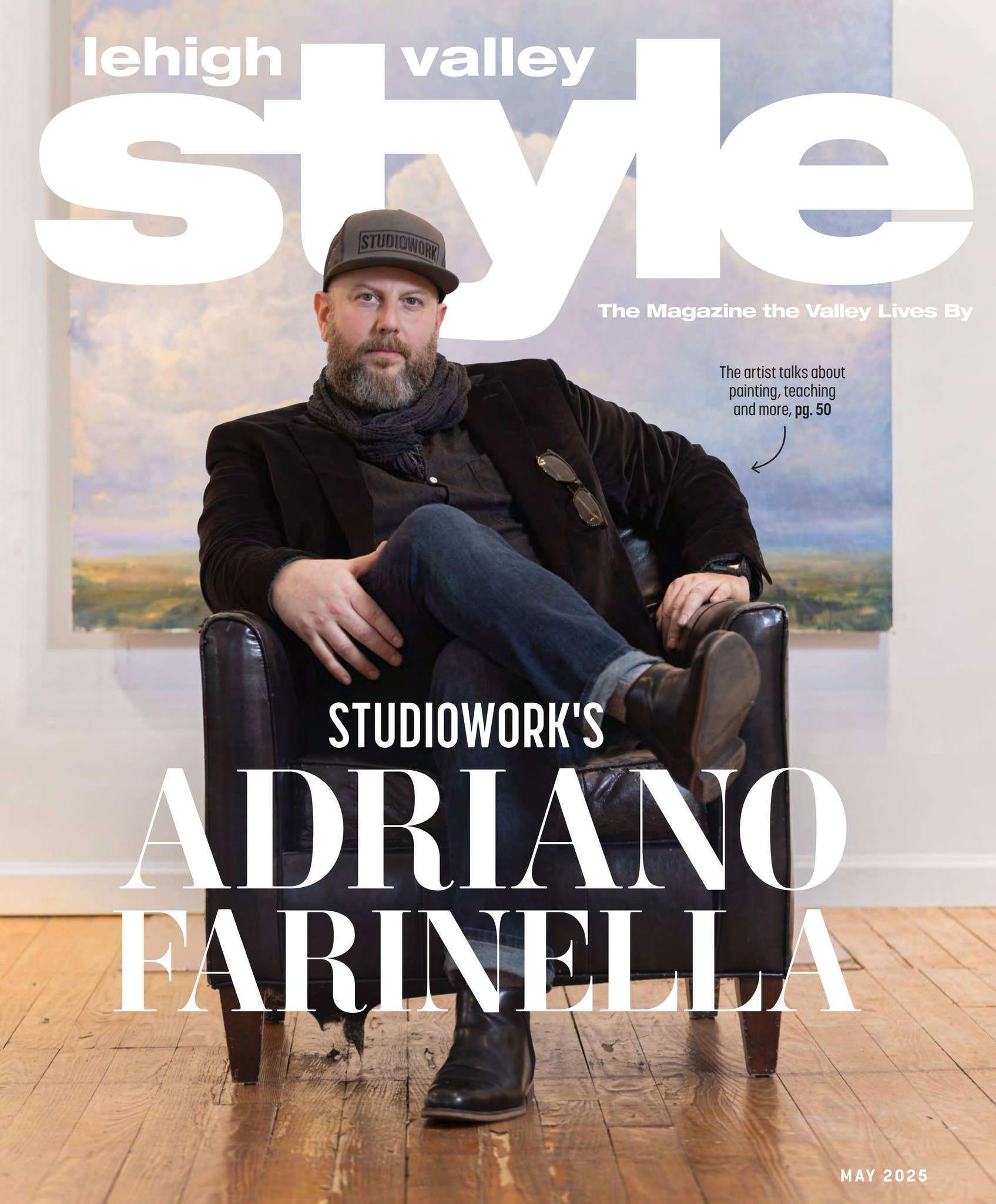Hotels need to serve a wide variety of clientele. But when you're a historic hotel located in a downtown that attracts a lot of out-of-towners and tourism (especially around Christmas), in addition to a fair number of devoted locals, that is even more pronounced. There's a need to balance tradition and innovation in hospitality in general, but somehow, that juxtaposition of ideals feels even more prominent in the professional kitchen of a historic hotel.
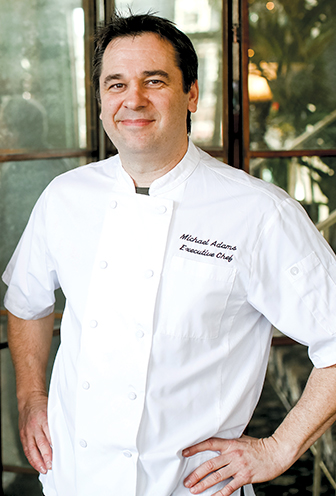
Enter chef Michael Adams. If you've lived in the Lehigh Valley and you love restaurants, you already know who he is. If you don't, just know that before his hiring at the Hotel Bethlehem as its executive chef, Adams was most readily identified in the region as the chef who was ahead of the curve in what is commonly referred to as “farm-to-table” cuisine. And by ahead of the curve, we're talking by at least 10 years. It wasn't uncommon for diners to encounter meals with local mushrooms, greens and other things on their plates at the Farmhouse (which is the current location of the House of House & Barn) in Emmaus, where he worked for 10 years as the chef (and ultimately chef-owner). Adams was also progressive about craft beer, long before the surge in its popularity took place a decade or so later, especially as it pertains to pairings with food. (You'll find Eight Oaks, Sly Fox, HiJinx, Funk, Tröegs and other local alcoholic beverage choices on the menu in varying degrees of regularity.)
Certainly, that's part of what drew the hotel to hire him, but it's a very different process to run a kitchen that serves breakfast, lunch and dinner (plus that well-regarded Sunday brunch) to almost 300 people versus an independent restaurant that seats 100 to 150. The logistics are, of course, different for getting the food from the kitchen to the table.
But because of the size and the multiple operations (the more casual Tap Room versus the fine dining of 1741 on the Terrace—plus all that banquet space, the weddings and so forth), it means a kitchen needs to make different choices. When you have so many mouths to feed, you can't spend all day, for example, making all the bread from scratch—an endeavor he started but then quickly realized the futility of after seeing how impossible such a feat would be. “My intention here and the reality did not match up,” says Adams, kind of laughing.
Hiring a chef such as Adams didn't necessarily mean the Hotel Bethlehem planned to transform its culinary approach into an entirely farm-to-table endeavor; it's not a term that is practical for a place such as the Hotel Bethlehem. (Plus, as awesomely agricultural as we are in Pennsylvania, we're not California, where almost everything, produce wise, is available all the time.) Rather, what has transpired in the five years since April 2014 when Adams was hired is a carefully considered revamp of the menu.
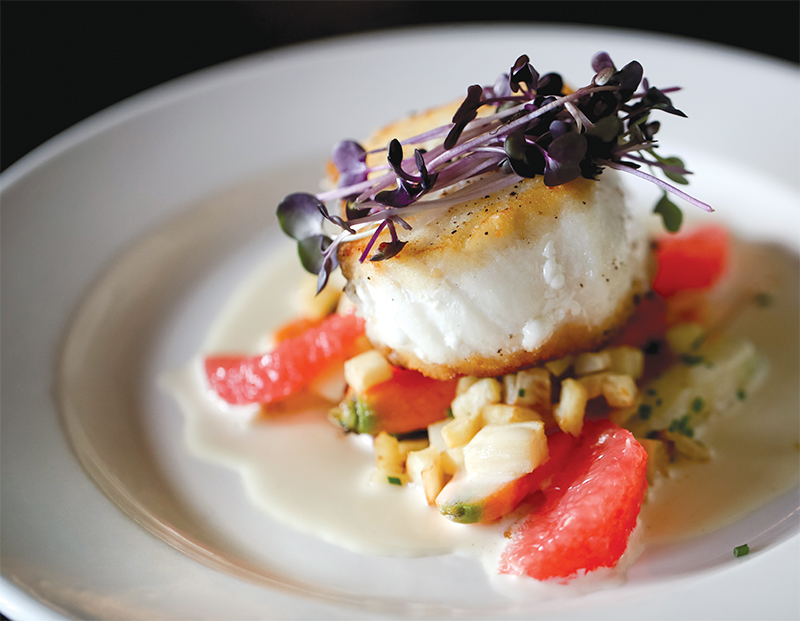
When you are dealing with dining in a historic property, there are certain things you cannot mess with. And that's tradition—you don't want to remove things that are known classics for your clientele. The Hotel Bethlehem has two separate dining facilities: the Tap Room, which is more informal, and the 1741 on the Terrace, fine dining. There are menu items that span both places, but you're more inclined to find the Hotel B Cheesesteak, the macaroni and cheese (which can get fancy with Maine lobster if you want to splurge) and the meatloaf at the Tap Room.
Of course, with prosciutto, spinach and provolone, it's not your average meatloaf. But these are some of the items that are non-negotiable. “I remember sitting right here [in the Tap Room] with my grandmother, eating mac and cheese,” says Brynn Levine, marketing manager for the hotel.
As she and I were looking over the menu, she said that several years ago, it wouldn't have possessed such descriptive qualities. The menu is so important though; it's the first form of communication between a diner and the kitchen, sometimes more so than the server (although the server is a key ambassador). We're talking about dishes that bear the provenance of their ingredients—Godshall Farm Baby Arugula Salad, for example, or just more generally speaking, naming the source of an ingredient, whether it's Scholl Orchards or The Farm at Doe Run for the cheese plate (and why wouldn't you hail the cheesemonger?). Granted, menus are more descriptive than they used to be in general (have you seen that crazy Portlandia skit about the chicken?), but it was a switch for the hotel. It's a switch that's escalated their culinary profile, across the board, as Adams redid the banquet menu, too, for all those weddings and special events that the hotel hosts. A hotel's clientele is broad, so keeping that balance between innovation and tradition—an acute, perennial challenge for restaurants and even more so for those situated in hotels—requires lots of negotiation and consideration.
“We have some sophisticated diners, and then lots of guests who want something simple. So I'll have duck with foie gras, but also the mac and cheese—and it all has to come out of the same line,” says Adams, referring to the kitchen. “We push the envelope a little bit.”
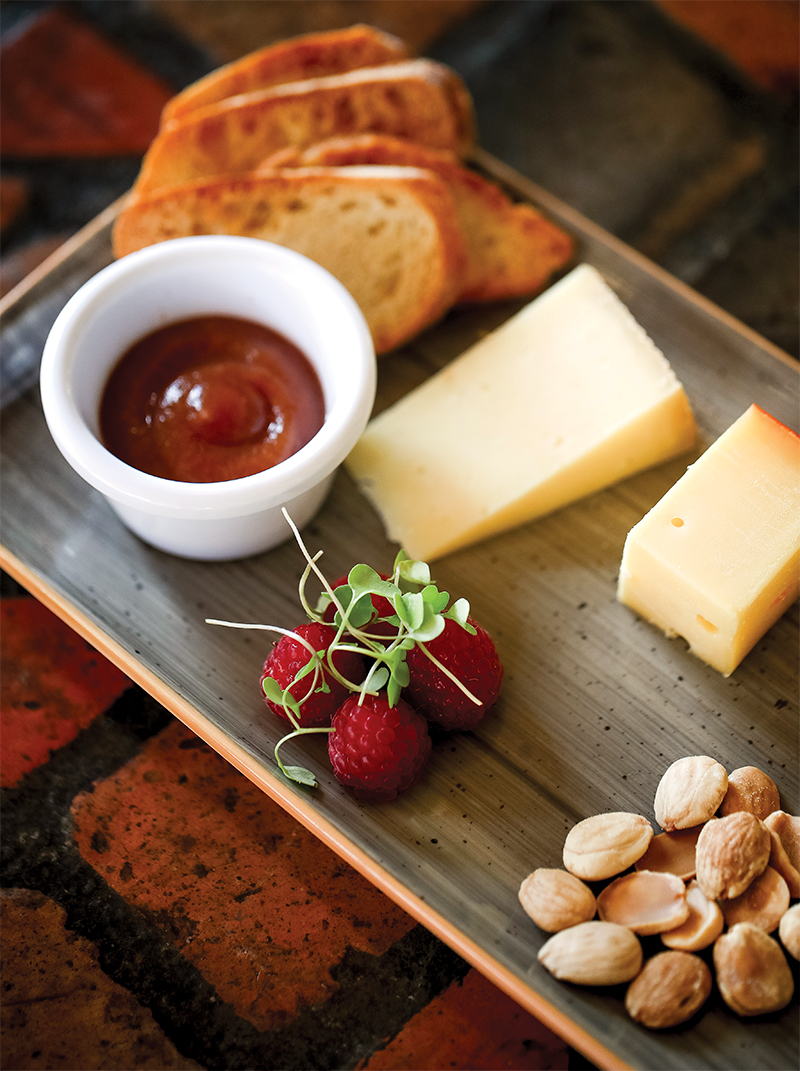
The menu changes four times a year—seasonally, just not hyper-seasonally like one might at an independently run restaurant. But Adams and his team are always bringing in local and seasonal foods for the menu and for specials, when it makes sense for the restaurant. (Seasonal also means, though, you'll see items like an Alaskan halibut when it becomes available; and like many sustainably minded chefs, Adams is always paying attention to the Monterey Bay Aquarium's list of alternate choices.) Greens come from Groff Farms in New Tripoli, for example. You'll also see things like organic eggs called out specifically on the menu. “I can't do organic eggs all the time for this place, for all eggs—there's not just anyone who can supply us,” he says. Instead, you'll see organic eggs specified as an ingredient.
When you hire a chef, if he or she is good—and Adams, a Culinary Institute grad who started his career at 16, is definitely that—you hire the expertise and relationships that chef has built over time. Rodney Rivera, the executive sous chef, has worked with Adams for years—in fact, they met at the Hotel Bethlehem when Adams worked there in 1996, and he went on to work with Adams at the Farmhouse, too. You also hire the dishes that have become the veritable ace in the hotel, like the mussels dish. Usually mussels are served in more of a broth that is often an afterthought, and the veggies or other aromatics like garlic or onions get lost in the bottom. Instead, what you have with Adams's mussels, is a simple combination of applewood-smoked bacon, tarragon and a warm balsamic sauce that is greater than the sum of its parts, somehow.
“I have yet to find a recipe for mussels that sells as well, that people consistently rave about,” he says. He's not exaggerating; he's been making this delicious appetizer since 2003.
With that longevity (Adams was at the Farmhouse from 2000 to 2010), also comes a following, which expands the sense of community that hotel restaurants can create. “When people make reservations, sometimes they will identify themselves and say, ‘I was at chef's beer dinner at the Farmhouse in 2005, or something,'” says Levine. “He has long-term relationships with diners, too—people who have followed him.”
Don't forget to save room for dessert. Across the street, there's the Hotel B Ice Cream Parlor, one of the few places in Pennsylvania where patrons can enjoy ice cream from Penn State's Berkey Creamery.
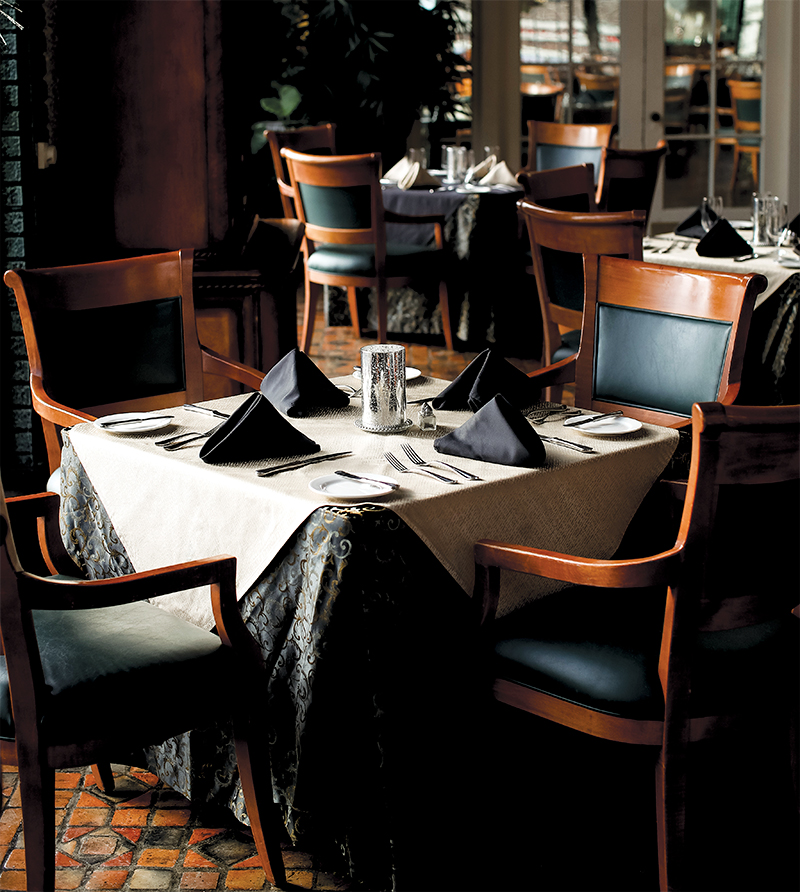
Hotel Bethlehem
The Tap Room
1741 on the Terrace
437 Main St., Bethlehem | 610.625.5000 | hotelbethlehem.com
Hours
1741: Sun.–Thurs.: 5–9 p.m.; Fri. & Sat.: 5–10 p.m.
Tap Room: Breakfast: 6–11 a.m.; Lunch: 11 a.m.–4 p.m.; Dinner: 4–10 p.m.
Reservations
Both dining facilities take reservations, and walk-ins are also welcome. In December, however, because of tourism, all bets are off.
Payment
Visa, Mastercard, American Express, Discover
Parking
Small deck on site, street parking, two parking decks within walking distance
What to Order
Do not, I repeat, do not, miss the mussels. They are something to behold. The mac and cheese. The meatloaf. The cheese plate is well balanced. And seafood, in general, sells really well. Order the cocktail Lost in Paris—it's a signature sip.
Events
This is a hotel, so keep in mind there's always going to be something going on. There are wine dinners, there's jazz on Thursday nights in the Tap Room, and the last Sunday of the month, there's music from 6–9 p.m. Happy hour takes place Mon.–Thurs. from 4:30 to 6:30 p.m. in the Tap Room, from January to November (again, all bets are off in December in the Christmas City). “We'll do small bites, and utilize a lot of the same ingredients that are on the menu—dollar oysters, usually from the East Coast so they are fresh,” says Adams.







